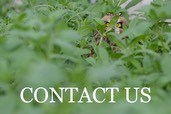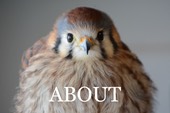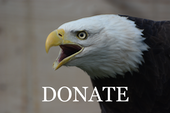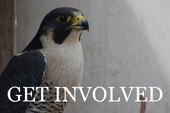Mission

Blue Mountain Wildlife’s mission is to preserve wildlife and the habitats in which they live. A healthy world will support healthy, thriving wildlife and healthy, thriving humans. We do this through wildlife rehabilitation and public education.
Orphaned, injured or sick wildlife are provided the necessary treatment and care enabling their return to the wild.
Educational programs and outreach enhance people’s understanding of the impact their actions have on wildlife and the natural environment.

Most of the animals brought to BMW have had negative encounters with humans, such as collisions with vehicles or manmade structures, gunshot wounds, poisoning or destruction of nests. Wildlife has not evolved to coexist with these situations, and humans have a responsibility to both understand and ameliorate their impacts.
Upon receiving an injured, ill or orphaned animal, a trained rehabilitator evaluates the condition of the animal and provides medical treatment. Animals requiring specialized care are taken to Pendleton Veterinary Clinic. Feeding, administering medication, physical therapy and reconditioning are among the many daily care tasks that are necessary for restoring an animal to a releasable condition.
Funding
Blue Mountain Wildlife is a volunteer nonprofit organization. Seventy percent of funding is from memberships and donations, 15% from grants and 15% from programs and fund-raisers. In-kind support or project-specific funding is also received from its board of directors and various agencies, including the Confederated Tribes of the Umatilla Indian Reservation, ODFW, WDFW, the USFWS, the Oregon State Police, the US Forest Service and the Oregon Dept. of Transportation.
Facilities:
Blue Mountain Wildlife serves the region with facilities in Oregon and Washington. The headquarters, or primary center is located five miles south of Pendleton, Oregon at the foothills of the Blue Mountains. With a 1-room medical clinic in a private residence, very functional, but aging, conditioning and display pens, the facility represents the love and labor of countless volunteers and contributors.
The Washington center was established in 2005 to function as a triage center for injured raptors, providing more timely treatment and facilitating the successful transportation to Pendleton for those birds requiring medical care. The facility includes a small intake building and a flight pen, and hosts a hack site where baby raptors are raised and released in a manner that simulates the care they would have received from their parents.
Since 1990, Blue Mountain Wildlife has admitted more than 5000 animals to the centers with a successful release rate of 50%, one of the highest release rates in the industry.
Staff:
Blue Mountain Wildlife Executive Director, Lynn Tompkins, the primary staff conducting Blue Mountain Wildlife's rehabilitation and education programs, earned a BS in Animal Science from Oregon State University as well as wildlife rehabilitation permits from the states of Oregon and Washington and a Federal permit from the USFWS. Working as a veterinary technician in the mid-1980's, she became involved in wildlife rehabilitation. With more than 25 years experience in wildlife rehabilitation, she is a member of national and international rehabilitation organizations and regularly updates her skills through continuing education opportunities and networking with fellow rehabbers.
Her husband Bob, BMW’s Assistant Director, is the resident “Jack of all trades” maintaining the facilities while assisting Lynn with the education programs and serving as the primary wildlife chauffeur. During the six months of the year when interns are not available due to a lack of suitable cold weather housing, Bob also assists with the care and treatment of wildlife patients.
BMW has one part-time employee, Winnie Burnett, who assists wherever needed, outside feeding birds and cleaning pens, cleaning in the clinic or working in the office. She provides invaluable technical support, maintaining BMW's website and Facebook page.
Board:
BMW is guided by a Board of Directors made up of local wildlife professionals, business owners, ranchers, bird enthusiasts, educators and philanthropists committed to public education and conservation of our wildlife resources. Chaired by Carl Scheeler, Wildlife Program Manager for the Confederated Tribes of the Umatilla Indian Reservation, the Board provides oversight to the sustainability and financial well being of the organization.
Volunteers and Partners:
Serving a geographic area nearly the size of the state of New York is accomplished with an extensive network of volunteers who transport injured birds throughout eastern Oregon and southeastern Washington.
Pendleton Veterinary Clinic donates veterinary care and services that require expensive equipment which cannot be placed at any of BMW’s facilities due to lack of space. Veterinarians may administer emergency care to wildlife patients, but must be licensed before treating them permanently. BMW is currently the only facility in the region meeting state and federal wildlife rehabilitation requirements.
Animal Clinic East in Walla Walla, WA, Pet Health Clinic in Sunnyside, WA and Prosser Animal Hospital in Prosser, WA also donate veterinary care and services to Blue Mountain Wildlife.
Internship Program- A summer internship program was established in 2006. The interns, generally college students or recent graduates, receive on-the-job training in basic wildlife rehabilitation skills and are able to learn about wildlife career opportunities. Three of our former interns have completed or are completing requirements for degrees in veterinary medicine. Interns are critical to our success by providing hundreds of hours of additional staff time during the extremely busy “baby season”.
Education Program:
While caring for sick and injured (primarily human impacted) wildlife is an important part of Blue Mountain Wildlife’s mission, public education is an even more critical function. BMW’s education team travels throughout the region taking non-releasable birds of prey to classrooms, outdoor schools and other public venues. This program exposes an average of 10,000 students each year to an arm’s length view of these magnificent birds. The students learn about their life history, their role in a healthy environment and our role in helping to maintain a harmonious co-existence with our native wildlife.
In addition to on and off-site programs offered to schools and service organizations, BMW coordinates programs with local and regional organizations and agencies including: the Confederated Tribes of the Umatilla Indian Reservation’s Tamastslikt Cultural Institute, Blue Mountain Audubon Society, Lower Columbia Basin Audubon Society, Friends of Mid-Columbia River Wildlife Refuges, ODFW and the USFWS.
Continuing education is important in developing a high quality wildlife rehabilitation program and is being required by an increasing number of states. Opportunities for such are limited in many rural areas. To address this issue BMW began offering wildlife rehabilitation seminars in 2003. The annual event provides rehabbers in Oregon, Washington and Idaho opportunities for broadening their rehabilitation skills and networking with each other. It also provides an opportunity for BMW volunteers and the general public to learn about wildlife rehabilitation.
Challenge with Lead Toxicity:
Ingested lead toxicity is an issue of major concern in the BMW service area. Nearly half of the eagles admitted for care require treatment for lead toxicity. The primary source of this contamination is toxic lead shot and bullets.
BMW is developing a region-wide education program, in consultation with Oregon, Washington, federal and tribal wildlife agencies, encouraging sportsmen to switch to lead-free ammunition and to “Get the Lead Out”.
Our Vision:
As the demand for Blue Mountain Wildlife’s services has almost doubled over the past several years, and our service area has expanded, it has become more and more apparent that our current facilities are inadequate to meet the growing need.
BMW is responding with the planned evolution of the current Pendleton facility into a state-of-the-art wildlife hospital, rehabilitation and educational center. The new facility will host a full service wildlife hospital, intern dormitory and residence area, in addition to a visitor information and education center.
Bringing complete veterinary care capacity to BMW’s Pendleton facility will reduce the need to transport critical patients to off-site veterinarians, greatly increasing the efficiency of treatment and improving survival rates.
The new visitor center will allow expansion of on-site educational programs and provide a significant draw for tourists and visitors to the Pendleton area as well as funding of operations.
Blue Mountain Wildlife is partnering with Green Hammer of Portland, Oregon, to assure the new facility utilizes state-of-the-art technologies and design that reduce energy and water use and minimizes waste and pollution.
Green Hammer is a nationally recognized leader in sustainable design and construction. Their mission is to fuse the art and science of building to develop highly efficient structures that are accessible, responsible, healthful, thoughtfully designed and aesthetically inspiring. Their holistic focus is on health, comfort, performance, durability and the impacts, both positive and negative, their buildings will have on the natural systems and resources.
BMW’s vision of providing people the tools to live in harmony with the natural world will be accomplished with this demonstration project, ensuring a sustainable organization to serve future generations of northwest wildlife and peoples.






